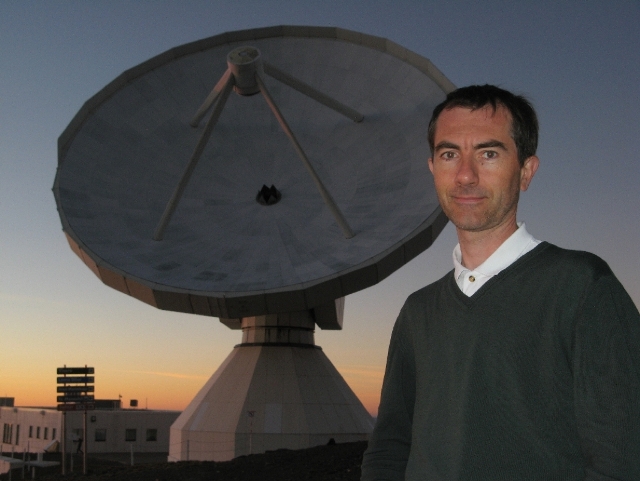Sep 29 2015
The fifth “Paolo Farinella Prize” has been awarded in 2015 to Dr Nicolas Biver, a French researcher at the Observatoire de Paris, Meudon, for his studies of the composition of comets through ground and space observations. The award ceremony was hosted today at the opening of the European Planetary Science Congress (EPSC) 2015, at the La Cité des Congrès, in Nantes, France. The ceremony included a public lecture by Biver on the topic "Diversity in composition amongst the comet family".
 Nicolas Biver, Paolo Farinella Prize 2015 winner. Credits: EPSC 2015/N. Biver
Nicolas Biver, Paolo Farinella Prize 2015 winner. Credits: EPSC 2015/N. Biver
The annual Prize was established in 2010 to honour the memory of the Italian scientist Paolo Farinella (1953–2000) and, each year, it acknowledges an outstanding researcher not older than 47 years (the age of Farinella when he passed away) who has achieved important results in one of Farinella’s fields of work. Each year focuses on a different area or research and in 2015, the fifth edition of Paolo Farinella Prize was devoted to planetary sciences, specifically to studies of the dynamics and physics of comets.
Nicolas Biver’s main research area is the observation and modelling of the composition of comets through spectroscopy at radio wavelengths. He was awarded with the Farinella Prize for his studies of water, and other molecules and isotopes, in comets by means of sub-millimetre and millimetre ground and space observations. His regular observations of comet Hale-Bopp between August 1995 and January 2002, clearly established the importance of carbon monoxide as the main driver for activity of comets in the outer solar system. His observational skills and knowledge of molecular physics led to major results concerning the activity of comets and the chemical and sunlight-driven processes within the coma. Biver has published most of his papers within an international team of researchers – a good number of them as first author. The steady effort of Biver and collaborators has led to very impressive results, for instance the determination of the ratio of hydrogen to its heavier isotope, deuterium, in 103P/Hartley 2. This ratio is an important indicator of where and when comets formed in the early solar system and is of particular interest to scientists in trying to determine the source of water in the Earth’s oceans. Comet 103P/Hartley 2 is the only comet analysed to date where this ratio exactly matches that of water on Earth. In addition, Biver played a key role in the detection of complex organic molecules in the comas surrounding comets of C/2012 F6 (Lemmon) and C/2013 R1 (Lovejoy).
“The research of Nicolas Biver has had a significant impact on topics of fundamental importance, including our understanding about the origin of the terrestrial water and life itself,” said Marco Fulle, Chair of the Prize Committee.
Before receiving the Prize, Biver commented: “I am delighted and a bit surprised to be awarded the 2015 EPSC Farinella Prize. I am glad that our work on studying the composition of comets on the basis of observations at radio wavelengths has been recognised in such a way. This is not just my own work but is the result of many collaborations, with several colleagues close and far that have contributed and whom I must also thank and give credit. I also understand that our results are providing inputs that many other researchers find valuable, especially those modelling the physics of solar system bodies and the evolution of our solar system. I have always worked to communicate our research findings with the general public and amateur astronomers and I am happy that this also follows the spirit of Paolo Farinella.”
Source: http://epsc2015.eu/